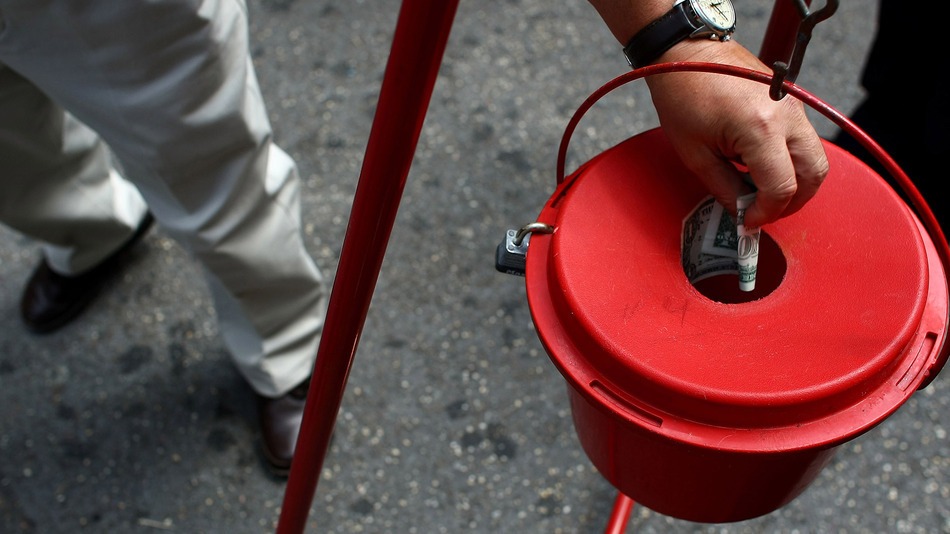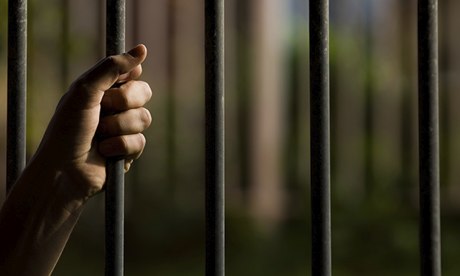Government Grants
Business Grants
Home Owner Programs
Federal Programs
About Us
Justice Reinvestment Initiative: Maximizing State Reforms
Approximately 2. 2 million people were incarcerated in federal, state, and local prisons and jails in 2014, a rate of 1 out of every 110 adults.
Many prison populations remain near all-time high levels and face crowding or resource challenges, and state spending on corrections has remained high.
Over the last 25 years, state corrections expenditures have increased exponentially from $12 billion in 1988 to more than $55 billion estimated for 2014, a significant increase even accounting for inflation.
Justice reinvestment emerged as a way to address these issues through a targeted, data-driven policymaking process.
BJA, in a public/private partnership with The Pew Charitable Trusts, launched the Justice Reinvestment Initiative (JRI) in 2010 as a multistaged process in which a jurisdiction reduces unnecessary incarceration, increases the cost-effectiveness of its criminal justice system and reinvests savings into high-performing public safety strategies.
Under the JRI model, a governmental working group with bipartisan and interbranch representation analyzes the correctional population and its cost drivers, develops cost-effective policy options, and implements reforms to manage correctional populations while enhancing public safety.
JRI jurisdictions reinvest these cost savings into high-performing initiatives that make communities safer.
In addition to reducing prison populations, justice reinvestment encourages states to embrace a culture of greater collaboration, data-driven decisionmaking, and increased use of evidence-based practices.
The JRI State Assessment Report, funded by BJA and authored by the Urban Institute, showed that the 17 assessed JRI states are making steady progress toward achieving the goals of JRI:
reducing correctional spending and reinvesting in recidivism-reduction strategies.
Of the 17 states, 8 had JRI policies in effect for at least one year.
All eight have experienced meaningful reductions in their prison populations, and five of them have met or exceeded their population reduction goals.
While the full impact of justice reinvestment reforms is not yet known, the policies enacted in JRI states hold great promise to reduce prison populations, achieve substantial cost savings, and avert future growth.
The Urban Institute continues to track outcomes in these 17 states and in the additional 7 states that have undertaken justice reinvestment efforts under JRI since the JRI State Assessment Report.
The report revealed that many JRI states have issues in common and have focused on similar priorities.
Each states criminal justice system is unique, requiring detailed analysis to determine factors behind prison growth and corrections spending.
However, many of the states found similar factors driving populations and costs for example, parole and probation revocation rates; sentencing policies and practices that favored incarceration of low-risk offenders over alternatives and that resulted in long lengths of stay; insufficient or inefficient community supervision, services, and support; and parole system processing delays and denials.
The policy responses to these issues also overlapped, sharing themes of evidence-based practices and data-driven decisionmaking, including risk and needs assessments; accountability measures such as performance and outcome measure reporting; earned credits to encourage compliance with conditions of community supervision; sentencing changes; swift, certain and fair responses to technical probation and parole violations, mandatory post-incarceration supervision requirements; problem-solving courts; streamlined parole processes and expanded parole eligibility; and re-entry programs to reduce recidivism.
Many prison populations remain near all-time high levels and face crowding or resource challenges, and state spending on corrections has remained high.
Over the last 25 years, state corrections expenditures have increased exponentially from $12 billion in 1988 to more than $55 billion estimated for 2014, a significant increase even accounting for inflation.
Justice reinvestment emerged as a way to address these issues through a targeted, data-driven policymaking process.
BJA, in a public/private partnership with The Pew Charitable Trusts, launched the Justice Reinvestment Initiative (JRI) in 2010 as a multistaged process in which a jurisdiction reduces unnecessary incarceration, increases the cost-effectiveness of its criminal justice system and reinvests savings into high-performing public safety strategies.
Under the JRI model, a governmental working group with bipartisan and interbranch representation analyzes the correctional population and its cost drivers, develops cost-effective policy options, and implements reforms to manage correctional populations while enhancing public safety.
JRI jurisdictions reinvest these cost savings into high-performing initiatives that make communities safer.
In addition to reducing prison populations, justice reinvestment encourages states to embrace a culture of greater collaboration, data-driven decisionmaking, and increased use of evidence-based practices.
The JRI State Assessment Report, funded by BJA and authored by the Urban Institute, showed that the 17 assessed JRI states are making steady progress toward achieving the goals of JRI:
reducing correctional spending and reinvesting in recidivism-reduction strategies.
Of the 17 states, 8 had JRI policies in effect for at least one year.
All eight have experienced meaningful reductions in their prison populations, and five of them have met or exceeded their population reduction goals.
While the full impact of justice reinvestment reforms is not yet known, the policies enacted in JRI states hold great promise to reduce prison populations, achieve substantial cost savings, and avert future growth.
The Urban Institute continues to track outcomes in these 17 states and in the additional 7 states that have undertaken justice reinvestment efforts under JRI since the JRI State Assessment Report.
The report revealed that many JRI states have issues in common and have focused on similar priorities.
Each states criminal justice system is unique, requiring detailed analysis to determine factors behind prison growth and corrections spending.
However, many of the states found similar factors driving populations and costs for example, parole and probation revocation rates; sentencing policies and practices that favored incarceration of low-risk offenders over alternatives and that resulted in long lengths of stay; insufficient or inefficient community supervision, services, and support; and parole system processing delays and denials.
The policy responses to these issues also overlapped, sharing themes of evidence-based practices and data-driven decisionmaking, including risk and needs assessments; accountability measures such as performance and outcome measure reporting; earned credits to encourage compliance with conditions of community supervision; sentencing changes; swift, certain and fair responses to technical probation and parole violations, mandatory post-incarceration supervision requirements; problem-solving courts; streamlined parole processes and expanded parole eligibility; and re-entry programs to reduce recidivism.
Obtain Full Opportunity Text:
Full Announcement
Additional Information of Eligibility:
Not Available
Full Opportunity Web Address:
https://www.bja.gov/funding/JRImaximizing.pdf
Contact:
For technical assistance with submitting an application, contact the Grants.gov Customer Support Hotline at 800-518-4726 or 606-545-5035, or via e-mail to support@grants.gov. The Grants.gov Support Hotline hours of operation are 24 hours a day, 7 days a week, except federal holidays. support@gr
Agency Email Description:
Technical Application Support
Agency Email:
support@grants.gov
Date Posted:
2016-02-09
Application Due Date:
2016-04-11
Archive Date:
2016-05-08
Social Entrepreneurship
Spotlight
Google+ and Mashable Holds First Charity Hangout-a-thon

Mashable is teaming up with Google+ for its first-ever Hangout-a-thon on Dec. 3 for Giving Tuesday. The Hangout-a-thon is a phoneathon for the connected generation of the 21st century, which features 12 hours of captivating guests sharing updates on some of the most disruptive nonprofits working today.

